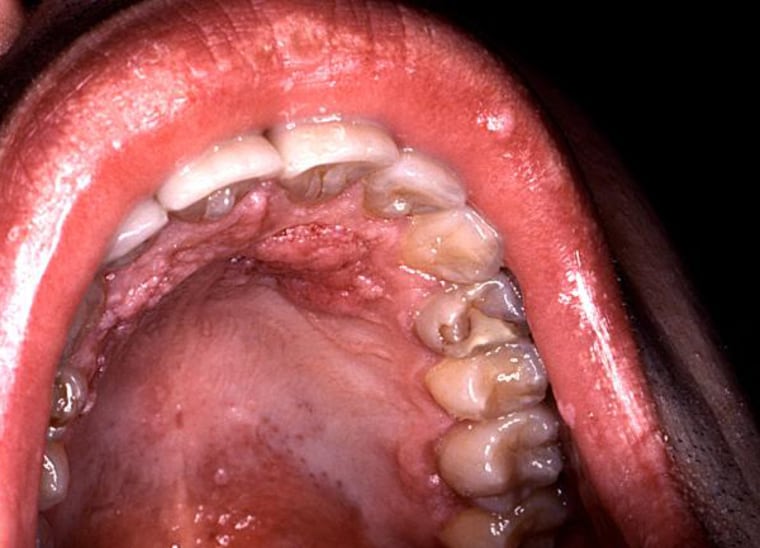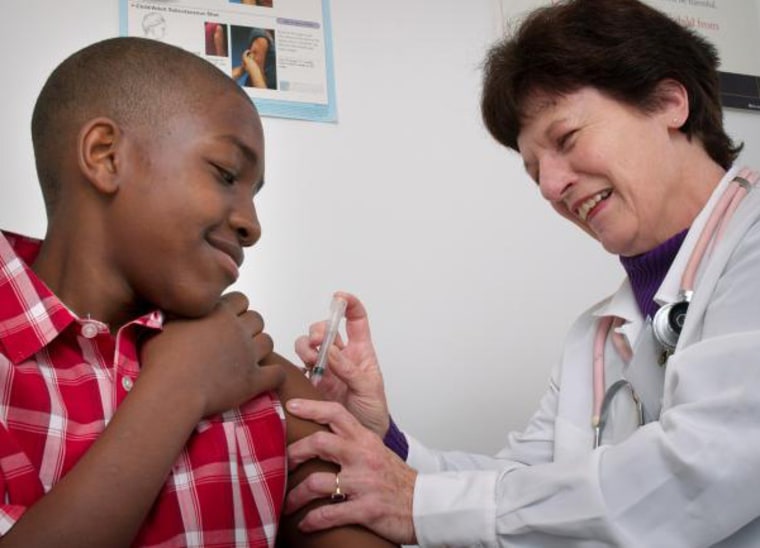The HPV vaccine, which protects against a range of cancers as well as genital warts, is safe and works very well, but just half of US girls have received it, health officials said Thursday.
And many are missing the shots even as they get other vaccinations during doctor visits, the Centers for Disease Control and Prevention says. That’s even though the vaccine is very effective and has already started to affect rates of infection with the human papilloma virus (HPV).
“One of the top reasons is their doctor didn’t recommend (it),” CDC director Dr. Tom Frieden toLd reporters in a conference call.
“We are dropping the ball,” he added. “We are missing the opportunity to give HPV vaccine… This is a huge disappointment.”
Even so, studies have shown HPV infections fell by half after vaccines became available. "HPV vaccine works even better than we hoped," Frieden says. "HPV vaccine is safe."
The CDC study did not look at how many boys and young men had been vaccinated, although the vaccine can prevent cancer in men, also, and has been recommended for boys since 2011.
Dr. Thomas McInerny, president of the American Academy of Pediatrics, said his organization would reach out to pediatricians to make sure they do more to get boys and girls vaccinated.
"Doctors need to step up their efforts by talking to parents about the importance of HPV vaccine just as they do other vaccines and ensure it’s given at every opportunity,” Frieden added in a statement. “Parents need reassurance that HPV vaccine is recommended at 11 or 12 because it should be given well in advance of any sexual activity."
Most childhood vaccines are required by most school districts --- a rule that means most kids are vaccinated. But not HPV. Only Virginia and Washington, D.C. public schools require the vaccine before kids can enroll, according to the National Conference on State Legislatures. The CDC recommends the vaccine for both boys and girls, starting at age 11.
Texas governor Rick Perry started a firestorm of controversy when he required the vaccine for Texas schoolgirls in 2007, and he was later overridden by the state legistature.
But the CDC’s Dr. Anne Schuchat says the school requirements are not really necessary to get children vaccinated. "We have people in the right place. We need doctors to recommend and deliver it,” she said.
The CDC says 79 million Americans are currently infected with HPV, which infects almost everyone at some point. Usually, the body can control it, but it can cause warts in the mouth and genitals in some people and it can cause cancer in unlucky patients. But cancer takes years to develop.
About 14 million people become newly infected each year.
A CDC survey found that about 54 percent of U.S. girls who should be vaccinated actually were in 2011. “If HPV vaccine had been administered during health-care visits when another vaccine was administered, vaccination coverage for one dose or more could have reached 92.6 percent,” the CDC said in a statement.

The CDC says 26,200 people get cancer every year because of HPV. More than 10,000 are cervical cancer, and 6,700 and head, neck and mouth cancers.
“By increasing three-dose HPV vaccination coverage to 80 percent, an estimated additional 53,000 cases of cervical cancer could be prevented over the lifetimes of those aged 12 years or more,” CDC says.
“For every year that increases in coverage are delayed, another 4,400 women will go on to develop cervical cancer.”
